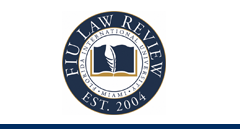Alternate Title
Clarifying Concreteness: Statutory Grants Of Standing After Spokeo And TransUnion
Abstract
Article III limits the federal judicial power to deciding “cases” and “controversies,” demanding that a plaintiff suffer real, concrete, de facto harm to sue in federal court. In Spokeo and TransUnion, the Supreme Court clarified the outer limits of concreteness by making clear to plaintiffs that an injury in law is not an injury in fact. The Court largely grounded the decisions in the separation of powers, setting a tone that appears less deferential to Congress in its creation of statutory rights of action. A plaintiff does not automatically satisfy the injury-in-fact requirement whenever Congress grants a right and purports to authorize a suit to vindicate that right. If the Court simply were to accept Congress’s judgment of what constitutes a concrete injury-in-fact, such acceptance would significantly broaden access to the federal courts and directly undermine the separation of powers. The federal standing requirements ensure federal courts remain forums for concrete injuries—not mere hypotheticals or abstractions. Federal courts hold the power to adjudicate, which entails the power to provide remedies. The purpose of this power is to provide remedies to those who are injured, and the Supreme Court has now put an end to Article III courts hearing claims based on nonexistent injuries. In so doing, the Court properly has prevented extension of the judicial power beyond cases and controversies.
Recommended Citation
Naomi Eid, Clarifying Concreteness: Statutory Grants Of Standing After Spokeo And TransUnion, 19 FIU L. Rev. 451 (2025), https://doi.org/10.25148/lawrev.19.1.12.
Included in
Constitutional Law Commons, Courts Commons, Litigation Commons





